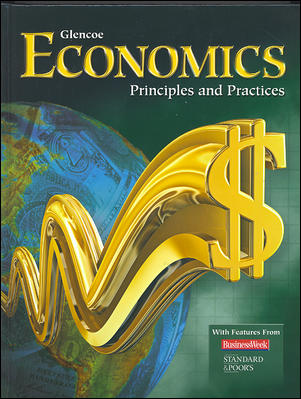
Economics: Principles and Practices © 2008Chapter 1: What Is Economics?Chapter OverviewsSection 1: Scarcity and the Science of Economics Economics is a social science that deals with the fundamental economic problem of scarcity—a condition caused by the combination of seemingly unlimited wants and limited resources. Because of this, people are forced to make choices and decisions about how they will use their resources. People have needs such as food, clothing, and shelter; people have wants, which are nonessential ways of expressing needs. The notion of TINSTAAFL, which stands for There Is No Such Thing As A Free Lunch, is often used to remind us that resources are scarce and that we must make careful economic decisions regarding WHAT, HOW, and FOR WHOM to produce. Other concepts relevant to economics are the four factors of production: land, capital, labor, and entrepreneurs. And the four key elements to this study are description, analysis, explanation, and prediction. Section 2: Basic Economic Concepts The concepts of goods, services, consumers, markets, factor markets, product markets, productivity, economic growth, and economic interdependence are explained and are linked in the circular flow diagram. Productivity is necessary for economic growth, and growth takes place when specialization and the division of labor are present. In addition, human capital, the sum of our skills, abilities, health, and motivations are other important components of growth. Section 3: Economic Choices and Decision Making Choices are explained in terms of trade-offs, or alternatives that are available whenever a decision is made. The cost of every decision is measured in terms of its opportunity cost, which is the cost of the next best alternative use of money, time, or resources when one choice is made rather than another. Trade-offs can be analyzed with a production possibilities frontier, a diagram representing various combinations of goods and services an economy can produce when all its resources are in use. Furthermore, economists use cost-benefit analysis to evaluate choices. |  |















